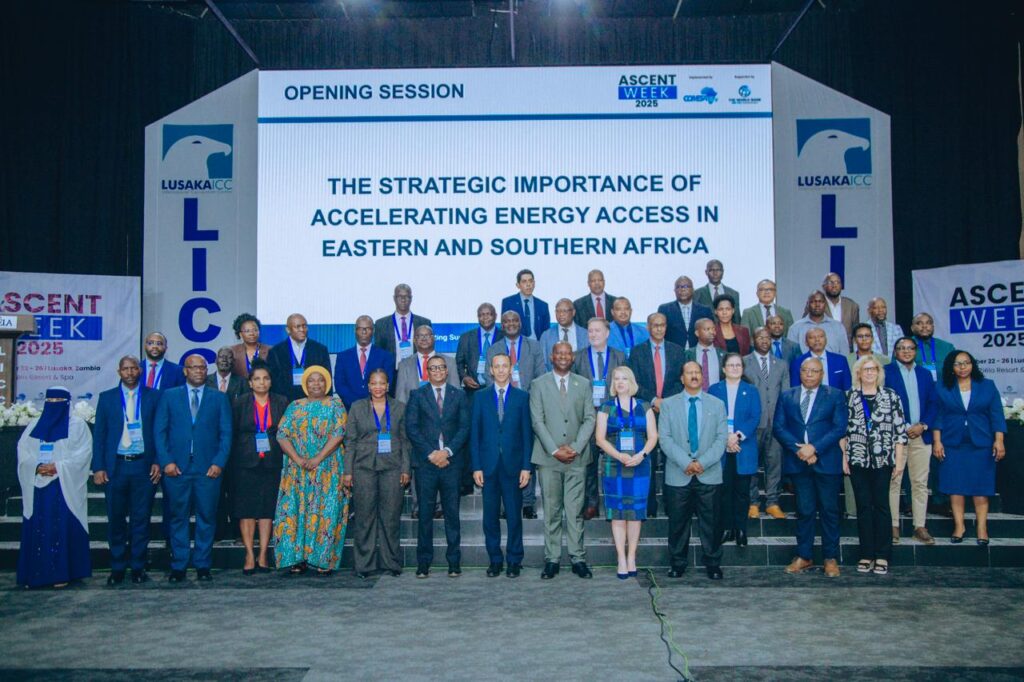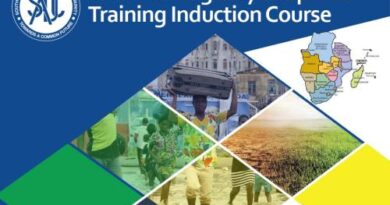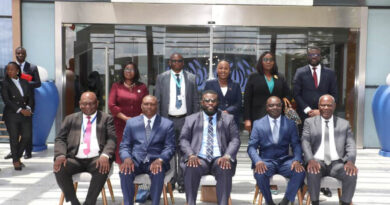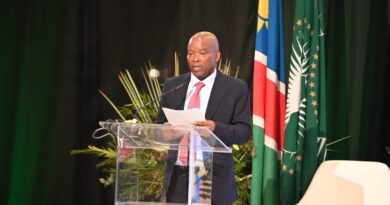Zambia Commits to $5 Billion ASCENT Clean Energy Drive
Zambia has pledged its full commitment to the Accelerating Sustainable and Clean Energy Access Transformation (ASCENT) programme, a $5 billion initiative led by COMESA and the World Bank aimed at electrifying 100 million people across Eastern and Southern Africa by 2030.
Opening ASCENT Week at Ciela Resort in Lusaka, Energy Minister Makozo Chikote described the programme as a decisive step in tackling energy poverty and promoting sustainable development.
“If we are to achieve universal energy access, we must work together to reduce the cost of clean energy technologies. Let us make clean energy not just available, but accessible,” Chikote told delegates.
Zambia’s electricity demand has been rising by over 6% annually, with installed generation capacity expanding from 2,400 MW in 2015 to 3,873.8 MW today. Peak demand is projected to exceed 4,500 MW by 2030. Despite these pressures, access to electricity has grown significantly: national access improved from 34% in 2021 to 54% in 2023, with rural access quadrupling from 8% to 34%.
Chikote noted Zambia’s strong solar potential, averaging 5.5 kWh/m²/day, but stressed that installed capacity remains below 400 MW. He urged development partners and financiers to support concessional financing, bulk procurement, and local manufacturing to lower costs. The private sector, he added, has a vital role to play in scaling up investment under Zambia’s ongoing policy reforms.
“A solar farm in Zambia can power homes in Malawi. A wind turbine in Kenya can light up classrooms in Uganda,” he said, calling for deeper regional cooperation.
COMESA’s Assistant Secretary General for Programmes, Dr Mohamed Kadah, warned that progress towards universal energy access remains too slow. He pointed out that over 630 million people in the region still lack electricity, while 790 million depend on firewood and charcoal for cooking. “The energy gap is one of our greatest vulnerabilities, but closing it is also one of our greatest opportunities,” he said.
The World Bank’s Yadviga Semikolenova, Energy Practice Manager for Eastern and Southern Africa, urged countries to double the pace of electricity connections if they are to meet the 2030 goal of powering 300 million people under Mission 300. She confirmed that ASCENT had already enabled 30 million new connections in its first year—10% of its target.
COMESA officials also highlighted the strategic priorities for success: harmonising policies, expanding infrastructure, engaging private capital, strengthening technical capacity, and ensuring inclusive access.
Hosted from 22–26 September, ASCENT Week 2025 brings together more than 400 stakeholders, including policymakers, financiers, and technical experts, to accelerate clean energy rollouts and share best practices.
“ASCENT is not just about energy access,” said Dr Kadah. “It is about unlocking opportunity, empowering communities, and building resilient economies.”



